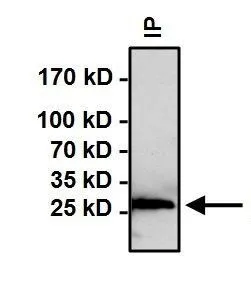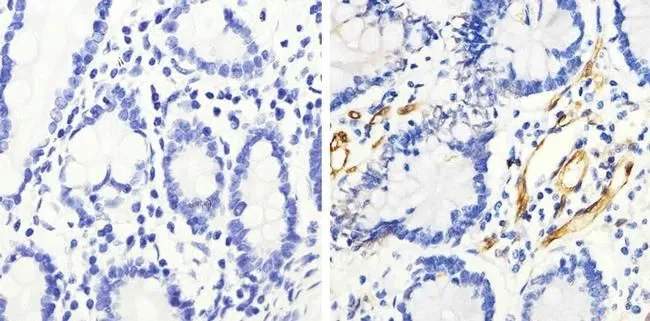
IHC-P analysis of human small intestine tissue using GTX17937 HSP27 (phospho Ser82) antibody. Right : Primary antibody Left : Negative control without primary antibody Antigen retrieval : 10mM sodium citrate (pH 6.0), microwaved for 8-15 min Dilution : 1:100
HSP27 (phospho Ser82) antibody
GTX17937
ApplicationsFlow Cytometry, Western Blot, ImmunoHistoChemistry, ImmunoHistoChemistry Paraffin
Product group Antibodies
ReactivityHuman
TargetHSPB1
Overview
- SupplierGeneTex
- Product NameHSP27 (phospho Ser82) antibody
- Delivery Days Customer9
- Application Supplier NoteWB: 1:500. IHC-P: 1:20-1:200. FACS: 1:20. *Optimal dilutions/concentrations should be determined by the researcher.Not tested in other applications.
- ApplicationsFlow Cytometry, Western Blot, ImmunoHistoChemistry, ImmunoHistoChemistry Paraffin
- CertificationResearch Use Only
- ClonalityPolyclonal
- ConjugateUnconjugated
- Gene ID3315
- Target nameHSPB1
- Target descriptionheat shock protein family B (small) member 1
- Target synonymsCMT2F, HEL-S-102, HMN2B, HMND3, HS.76067, HSP27, HSP28, Hsp25, SRP27, heat shock protein beta-1, 28 kDa heat shock protein, epididymis secretory protein Li 102, estrogen-regulated 24 kDa protein, heat shock 27 kDa protein, heat shock 27kD protein 1, heat shock 27kDa protein 1, heat shock protein family B member 1, stress-responsive protein 27
- HostRabbit
- IsotypeIgG
- Protein IDP04792
- Protein NameHeat shock protein beta-1
- Scientific DescriptionThis gene encodes a member of the small heat shock protein (HSP20) family of proteins. In response to environmental stress, the encoded protein translocates from the cytoplasm to the nucleus and functions as a molecular chaperone that promotes the correct folding of other proteins. This protein plays an important role in the differentiation of a wide variety of cell types. Expression of this gene is correlated with poor clinical outcome in multiple human cancers, and the encoded protein may promote cancer cell proliferation and metastasis, while protecting cancer cells from apoptosis. Mutations in this gene have been identified in human patients with Charcot-Marie-Tooth disease and distal hereditary motor neuropathy. [provided by RefSeq, Aug 2017]
- ReactivityHuman
- Storage Instruction-20°C or -80°C,2°C to 8°C
- UNSPSC12352203

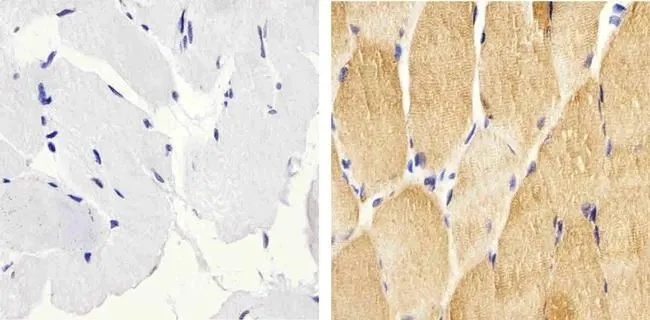
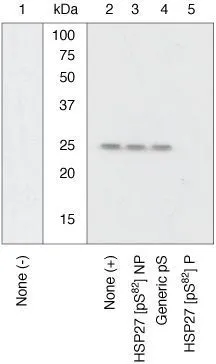
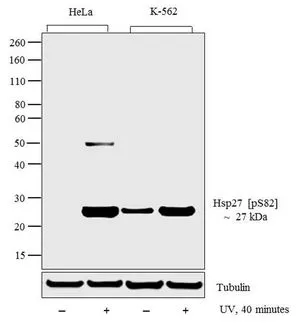

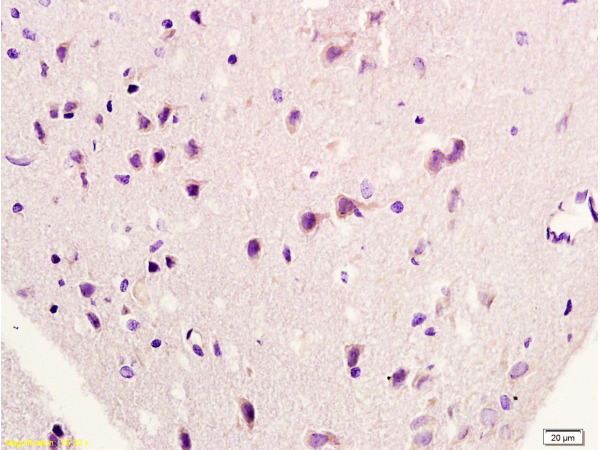

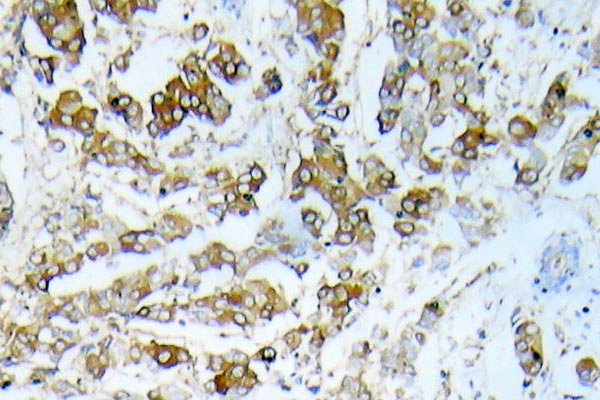
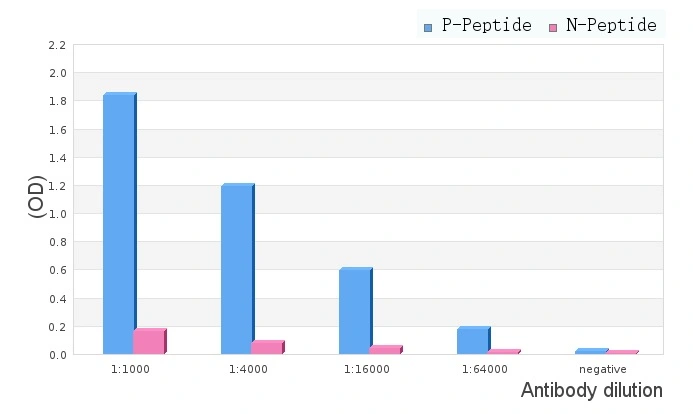
![ICC/IF analysis of HeLa cells and negative control NIH3T3 cells using GTX22790 HSP27 antibody [G3.1]. Green : Primary antibody Blue : Nuclei Red : Actin Fixation : Formalin Permeabilization : 0.1% Triton X-100 in TBS for 10 minutes Dilution : 1:50 for at least 1 hour at room temperature](https://www.genetex.com/upload/website/prouct_img/normal/GTX22790/GTX22790_446_ICC-IF_w_23060620_410.webp)
